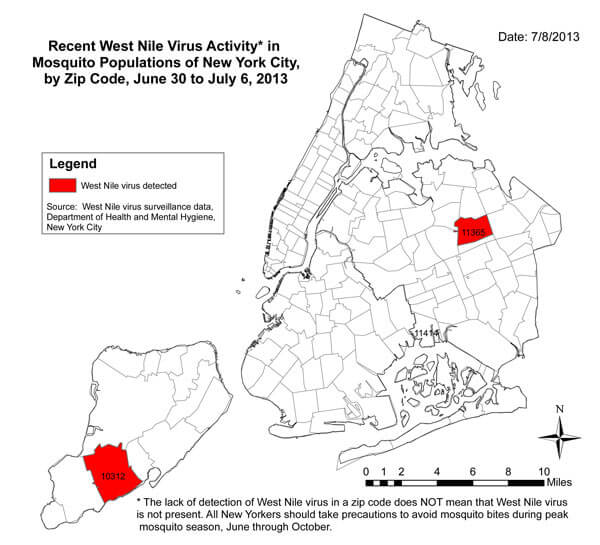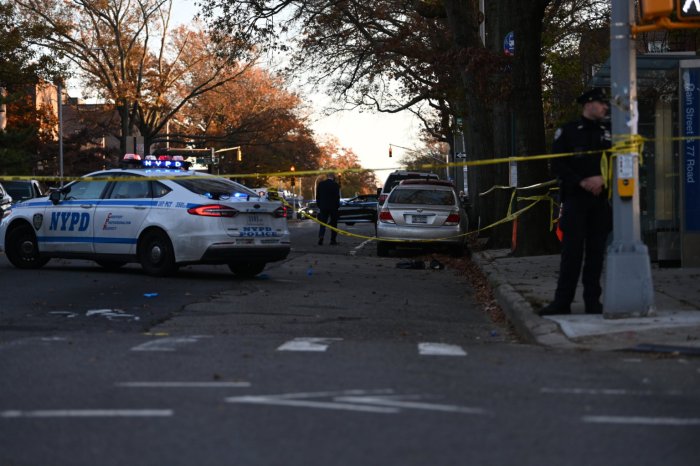By Joe Anuta
West Nile-infected mosquitoes were discovered in the Pomonok area of Queens and officials urged residents this week to take steps to avoid infection.
The disease-carrying insects were part of the first batch discovered this season by the city Department of Health, which confirmed Monday no human infections had been logged this summer.
Health Commissioner Dr. Thomas Farley wants to keep it that way.
“Now that West Nile virus has returned to New York City, it is important to take simple precautions to protect you and your family,” he said in a statement. “Be sure to wear mosquito repellent when outdoors, and cover your arms and legs if you’re outside at dawn or dusk.”
West Nile comes in two varieties. The first induces a typically nonfatal fever or headache, but the virus can also cause potentially deadly neurological infections like encephalitis or meningitis.
Young children and the elderly are especially vulnerable to serious cases of West Nile and should take extra caution, according to a lawmaker who represents the Pomonok area.
City Councilman James Gennaro (D-Fresh Meadows) suggested using insect repellent containing DEET, picaridin, or products that contain an active ingredient known as IR3535. Oil or lemon eucalyptus is also effective, but is not suitable for children under 3, according to his office. Homeowners should also try to eliminate standing pools of water, where the pests typically congregate, which could include clogged roof gutters.
Queens has an infamous relationship with West Nile.
Officials discovered the country’s first case of the virus in College Point in 1999, and the Health Department has been waging annual battles against legions of the blood suckers ever since.
This time around, the department said it has treated Pomonok catch basins, another favored haunt, and have laid numerous traps for the bugs.
In addition, helicopters will continue to drop larvicide over marshes or wooded areas of the borough in the hopes of killing the next generation of mosquitoes before they can grow up and infect their human neighbors.
The latest department schedule showed neighborhoods, including College Point, Linden Hill and Alley Pond Park, will be getting either aerial treatments or mobile exterminations.
Pomonok was not on the list, but the department noted the West Nile infection had not been discovered until after the schedule was made.
Reach reporter Joe Anuta by e-mail at januta@cnglocal.com or by phone at 718-260-4566.






























